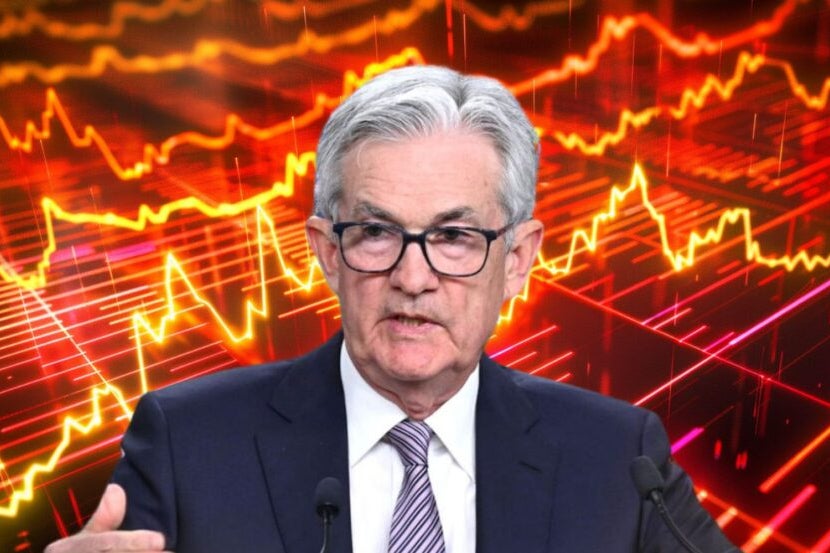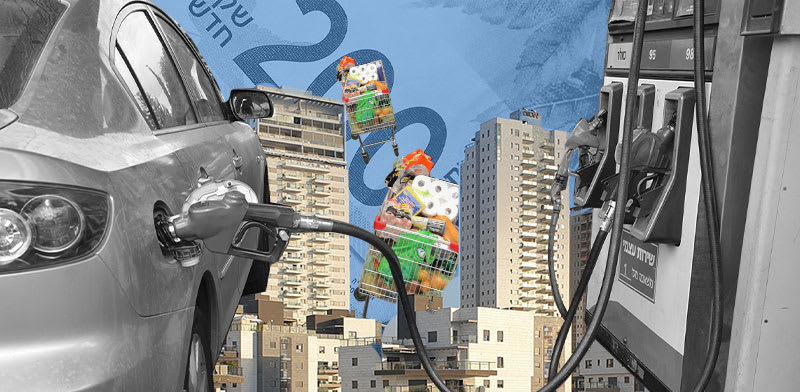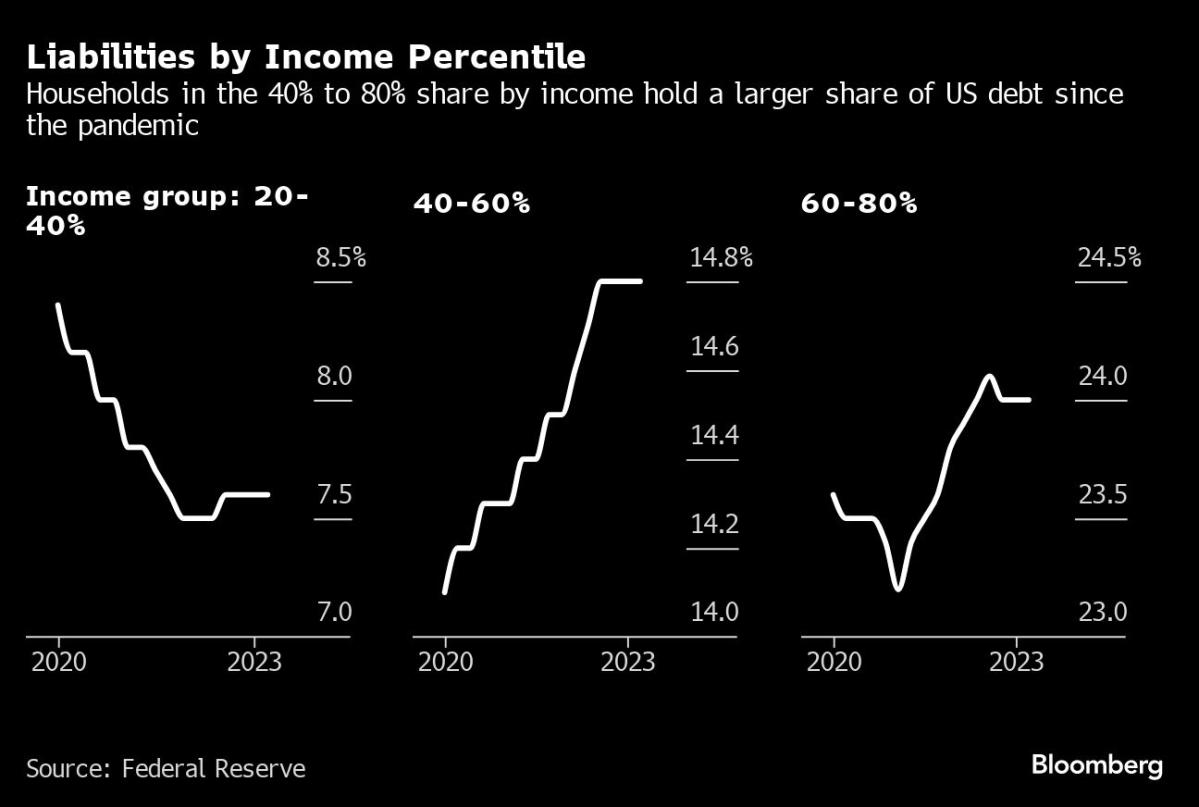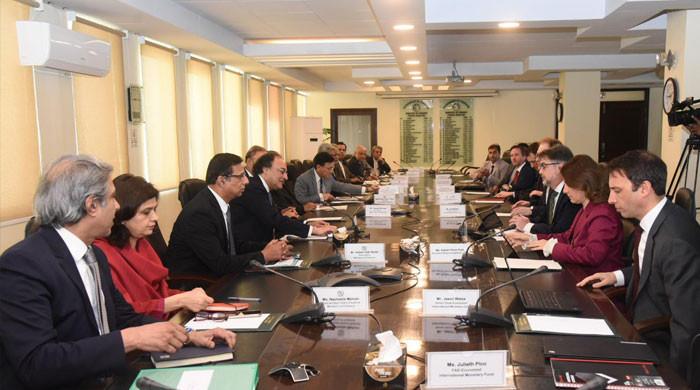India's External Affairs Minister, S Jaishankar, urged businesses to move beyond complaining about supply chain concentration in China and instead consider supporting domestic networks to strengthen India's manufacturing base. He highlighted the importance of trust and transparency in digital and telecom sectors and emphasized the need for businesses to be proactive in making choices that align with India's interests.

Goldman Sachs CEO David Solomon warns that inflation may be more challenging to address than anticipated due to high price pressures in the US economy, even though he is optimistic about his firm's performance this year.

China's declining birth rate may become irreversible without substantial policy changes to support maternity and families, warns economist Ren Zeping, as the country saw the number of births drop for the seventh consecutive year in 2023. To combat this, China needs to fully liberalize and encourage fertility, extend maternity leave, strengthen support for paternity leave, and issue birth subsidies based on the number of children, Ren emphasized. The country's demographic crisis could lead to a 60% decline in population by the end of the century if the current trend continues.

A Canadian woman from Ontario shares her secrets to affordable plant-based meals in the midst of skyrocketing food prices, offering tips on how to make meals for under $2 and prevent food waste.

US Treasuries decline as traders reduce expectations for monetary easing from the Federal Reserve, leading to the worst week for 10-year notes this year.

The United States is facing a housing affordability crisis, with a shortage of homes and rising prices, which is dampening the economy and causing financial stress for many Americans.

The US is accumulating debt at an alarming rate, which could lead to a potential financial crisis and inflation if drastic measures are not taken to address the issue, warns a former deputy director of the IMF.

The closure of Family Dollar stores across the United States has ignited a debate on the impact of dollar store chains on low-income communities, with critics arguing that they undermine independent supermarkets and lead to reduced access to fresh produce. Cities and towns are implementing restrictions on the growth of dollar stores in favor of alternative retail options and efforts to revitalize independent grocers.

The Bank of Japan is expected to end its negative interest rates and make its first rate hike since 2007 as inflation remains steady at 2% and wages are increasing.

Music fans are being charged exorbitant prices for tickets sold by third-party outlets online, causing frustration and financial strain on concert-goers.

India's merchandise exports grew by 12% in February, reaching $41.4 billion, and the overall contraction in exports for the first 11 months of the fiscal year narrowed by 3.6% to $395 billion, despite global challenges, according to senior officials.

The author criticizes Joe Biden's handling of the economy, arguing that the rising inflation and increasing insurance costs contradict his claims of lowering costs for American families.

Platinum Equity-backed technology company Ingram Micro is considering seeking a valuation of about $8 billion in its upcoming US initial public offering.

Investors are closely monitoring the impact of potential Federal Reserve rate cuts on consumers, with US Bank Wealth Management SVP Lisa Erickson noting the resilience exhibited by consumers despite ongoing economic challenges and the need for "greater evidence" of inflation cooling before considering rate cuts.
Despite the continued expansion of the American economy, voters aren't happier with Joe Biden's economic performance.

The US's soaring debt threatens to break something in the market if the government doesn't pull back its pace of spending soon, according to a Wharton finance professor.
Goldman Sachs CEO David Solomon warns that inflation may be more persistent than anticipated, as the U.S. economy shows resilience despite tightening conditions and predicts future rate cuts.

Ghana and the UK have a growing bilateral trade relationship, with Ghana exporting commodities such as coffee, tea, crude oil, and vegetables to the UK, while importing machinery, textiles, and meat. The total value of trade between the two countries increased by 44.6% in the third quarter of 2023 compared to the previous year, with Ghana ranking as the UK's 65th largest trading partner.
Consumers' optimism about the economy has slightly decreased, but they anticipate a further cooling of inflation, indicating a potential slowdown in price increases.
U.S. consumer sentiment remained relatively stable in March, with little change in inflation expectations, as consumers remained uncertain about the current state of the economy and its long-term trajectory due to the upcoming November election.

Economists are divided on whether the Federal Reserve will stick to its plan for three interest-rate cuts in 2024, as some experts suggest the central bank should consider immediate rate cuts to accommodate low inflation, while others argue that the strong economy and higher-than-expected inflation rates mean the Fed should exercise patience.

Investors are preparing for interest rate cuts by the Federal Reserve, but conflicting data and inflation prints may complicate the decision, while the tech market is influenced by AI hype.
The cost of carrying debt in the US is becoming a significant burden for households as interest rates on credit cards and auto loans reach their highest levels in over a decade, posing a potential risk to the economy and impacting consumer sentiment, which could affect President Joe Biden's reelection prospects. Many families, particularly those without low-interest home loans, are feeling the financial squeeze, and the Federal Reserve is not expected to cut rates until later in 2024. As a result, consumers are more vulnerable to economic downturns, and the high debt burden could shape their spending choices and contribute to defaults.

US industrial production increased 0.1% in February, driven by gains in manufacturing and partially offset by a drop in utilities output.

Israel's Consumer Price Index rose 0.4% in February, resulting in an annual inflation rate of 2.5%, while apartment prices have increased for the second consecutive month.

Chile is seeking to qualify its lithium components for subsidies under the US Inflation Reduction Act, potentially attracting increased investment in its battery metal reserves.

The stock market fell as a large number of options were set to expire, causing potential price volatility.
China's state-led industrial policy is facing scrutiny and debate as its surging exports and trade surplus in alternative energy raise concerns about global implications and the need for adjustments to the policy to maintain trade relations with the West and prevent overcapacity; while some advisers argue that state-led investment is necessary for steady growth, others warn of the potential detrimental effects and urge a balance between domestic consumption and government investment.

India's foreign exchange reserves surged by $10.47 billion to $636.1 billion, marking the largest increase since July 2023, driven by growth in foreign currency assets and gold reserves.

China's bank loans expanded at the slowest pace on record in February, indicating weak borrowing demand and posing challenges to Beijing's economic growth target.

Nearly 8 in 10 Long Islanders have experienced a negative impact on their finances due to inflation, with rising prices affecting 51% of residents very negatively and an additional 28% somewhat negatively, according to a poll by the Siena College Research Institute.

US families are facing increasing financial pressure due to the rising cost of carrying debt, with delinquency rates on credit cards and auto loans reaching the highest in over a decade, and interest payments on non-mortgage debts now as burdensome as mortgage interest payments, indicating that the era of high borrowing costs may have long-term effects on consumer sentiment and economic growth.

Former chief economic adviser Arvind Subramanian expressed confusion and skepticism over India's latest GDP numbers, stating that they are difficult to understand and do not add up, with errors and omissions accounting for a significant portion of the estimated growth. He also questioned the disconnect between the claimed attractiveness of the Indian economy for investment and the lack of foreign direct investment and low levels of private and corporate investment.

China's cabinet is launching a nationwide fact-finding mission to address persistent problems faced by struggling businesses and take appropriate action, in line with Beijing's goal of stable and transparent business policies and economic growth, with a particular focus on market-access barriers, unfair competition, government services and efficiency issues, rights infringements, and impediments to opening up to investors.

In the EU, between the third and fourth quarter of 2023, 3.2 million unemployed individuals found jobs, while 6.7 million remained unemployed and 3.2 million moved out of the labor force.

Taiwan Semiconductor Manufacturing Co.'s rapid rise is causing concern even among its biggest backers, prompting caution about the risks faced by the world's largest contract chipmaker.

Fuel prices in Kenya have dropped for the first time since August, with the cost of super petrol falling by up to Ksh7 per liter, marking the largest month-on-month drop in the country; the price reduction is expected to ease the rising cost of living and is accompanied by a decline in inflation and a record gain for the Kenyan currency.
China's exports to Mexico have seen a significant increase, with a nearly 60% surge in January compared to the previous year, potentially indicating a strategy to bypass US tariffs. Mexico has surpassed China as America's top trade partner, and the growth in trade between the two countries suggests more than just Mexican demand for Chinese goods.
The US economy is showing conflicting signals, with the markets perceiving growth while labor economists warn of a deepening slowdown and the risk of recession if the Federal Reserve ignores the warning signs, as evidenced by climbing unemployment numbers and declining employment over the past six months.

The International Monetary Fund (IMF) has expressed displeasure over Pakistan's finance ministry for announcing its verdict on meeting all benchmarks and targets before the completion of the review process, during talks on the $3 billion Standby Arrangement (SBA) program; the IMF team grilled the finance ministry during the review talks.

New home prices in China continued to decline in February, indicating the need for additional policy measures to boost demand, especially in top-tier cities like Beijing and Guangzhou.

China's central bank has withdrawn cash from the banking system for the first time since November 2022, signaling its cautious approach to using monetary policy to boost economic growth and its willingness to support the yuan.

The newly elected government of Pakistan has developed a five-year strategy to boost the country's economy, focusing on reducing poverty, creating jobs, and increasing tax revenue through measures such as direct subsidies to farmers and promoting the Danish school model. Prime Minister Shehbaz Sharif also aims to cool down political and social tensions in the country.

The formation of a new government and positive signals from the IMF have led to a decrease in the value of the dollar against the rupee, indicating increased confidence in the stability of the exchange rate in Pakistan.

The Dallas-Fort Worth area ranked second in the country in terms of inflation rate in 2024, with a consumer price index rise of 5.3% compared to the same period last year.

The Chairman of the Finance Committee, Kwaku Kwarteng, blames Ghana's current economic crisis on decades of reckless public expenditure and economic mismanagement, emphasizing that it is not solely due to recent events such as the Covid-19 pandemic and the Russia-Ukraine war.

The dollar is expected to end a three-week losing streak after U.S. inflation data indicated a potential delay in interest rate cuts, while the yen remains steady ahead of a Bank of Japan meeting where they may shift away from negative interest rates.

Weak retail sales and rising producer prices have experts concerned about the health of the American consumer and the potential impact on the economy.

Populists are more likely to gain power during financial crises or economic downturns, but once in power, they often fail to deliver on their promises of economic prosperity, leading to long-term negative effects on GDP and inequality. Furthermore, populist leaders tend to interfere with institutions and pursue policies that can be detrimental to the economy.

Economists predict a drop in February's consumer sentiment data but an increase year over year, while the import price index (IPI) for February is expected to decrease month over month, providing an inflation gauge ahead of the Federal Open Market Committee (FOMC) meeting.